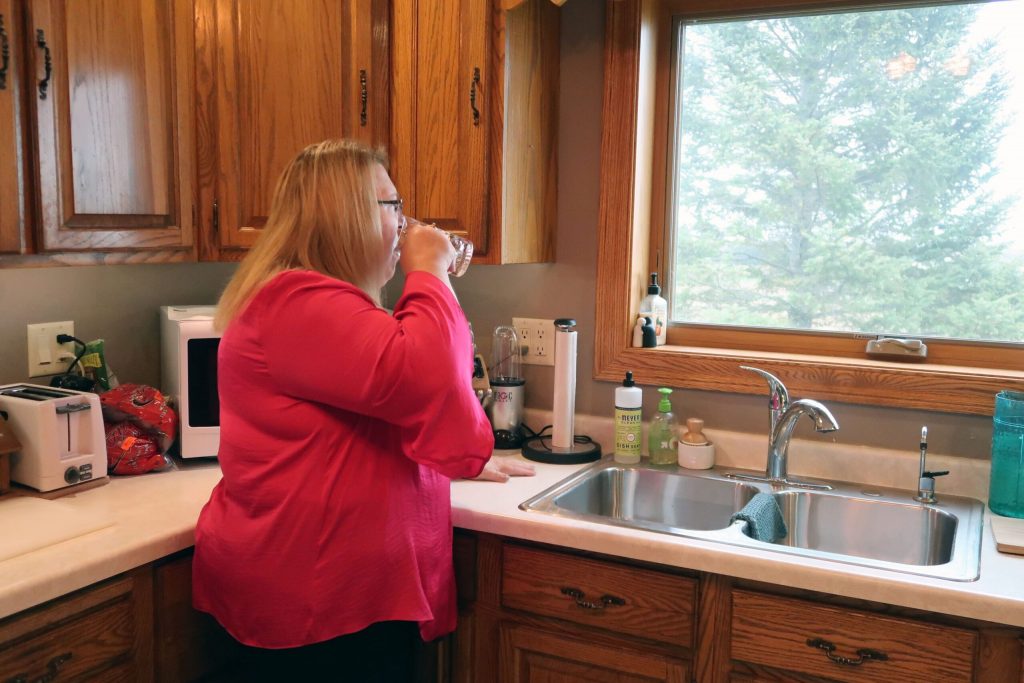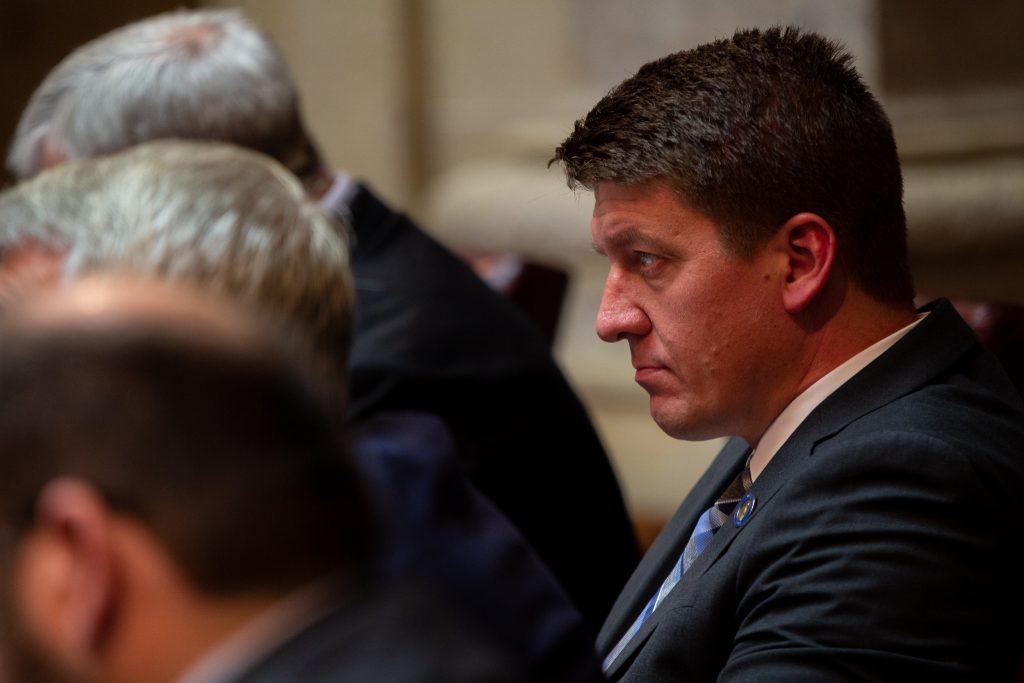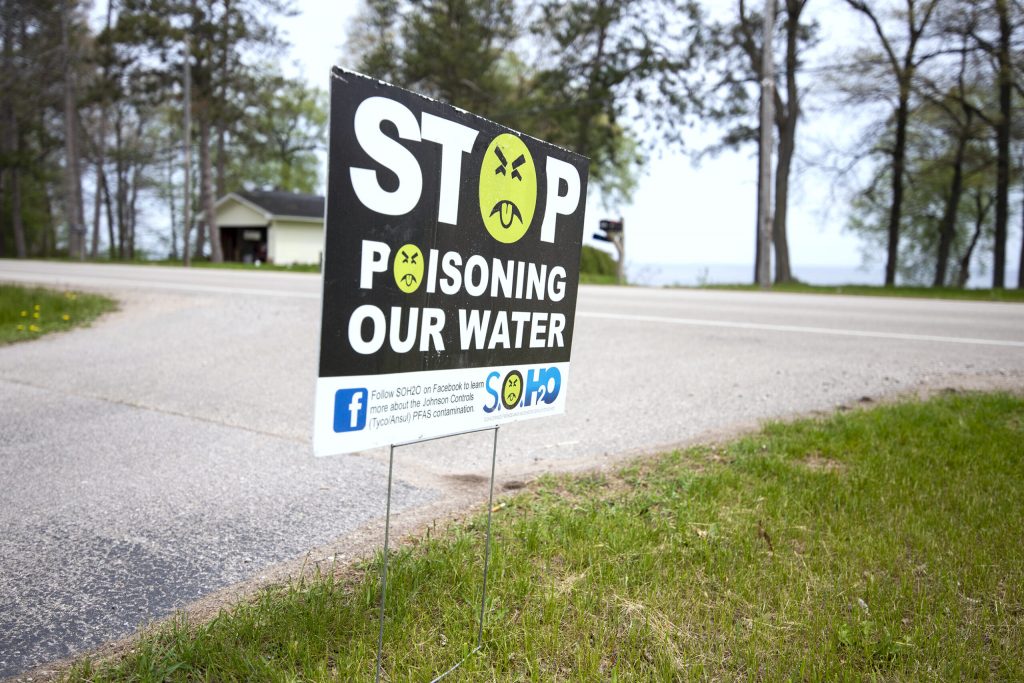Coalition of 30 Groups Calls for $953 Million Funding For Safe Drinking Water
Pushing WI Legislature for water infrastructure upgrades and preventive measures.
A coalition of groups are asking Wisconsin lawmakers to invest almost $1 billion in water infrastructure in addition to policy changes and other preventive measures to protect safe drinking water.
More than 30 conservation, environmental and citizens groups signed a letter calling on lawmakers to invest $953 million for drinking water infrastructure under the next two-year state budget. The request comes as the nation marks the 50th anniversary of the federal Safe Drinking Water Act.
“When we’re sitting on a $4 billion surplus, we strongly believe that access to safe drinking water should not be a zero sum competition, and that we should use the resources we have to ensure that everyone can turn on the tap and know that the water coming out of it is safe to drink,” said Burress.
The letter highlights multiple challenges affecting safe drinking water. They include roughly 150,000 lead service lines owned by utilities that need to be replaced, as well as more than 42,000 private wells that exceed the health standard for nitrates and around 90 water systems with high PFAS levels.
Contamination from those sources have been known to cause serious health issues, including blue-baby syndrome, thyroid cancer and developmental delays in children.

Erika Balza drinks water from a water cooler instead of the faucet because she doesn’t trust her well water is safe from nitrate contamination. Danielle Kaeding/WPR
“This amount of funding was requested to take full advantage of the federal funding that is available through the Bipartisan Infrastructure Law,” said Tony Wilkin Gibart, executive director of Midwest Environmental Advocates.
Wisconsin has so far received $535 million for water infrastructure under the law. State environmental loan programs are set to receive a total of more than $900 million in additional funding from federal fiscal years 2022 through 2026.
Burress said further state investment could save up to $2 billion annually in avoided health care costs related to lead, nitrate and PFAS contamination based on data extrapolated from multiple studies.
Groups also call for policy changes, preventive action
Groups are also asking lawmakers to remove a 2017 law known as the REINS Act.
Burress said the law doesn’t include a benefit analysis of regulations, saying it’s been a barrier for setting groundwater standards. Around one-third of residents rely on private wells that draw from groundwater.
In a statement, Senate Majority Leader Devin LeMahieu, R-Oostburg, said the REINS Act has become model legislation for other states and the federal government. LeMahieu introduced the bill to prevent excessive administrative costs.
“Wisconsin led on reining in runaway executive power and repealing or limiting REINS would move us backward,” LeMahieu said.
Groups are also urging lawmakers to take steps to prevent harmful contaminants from getting into drinking water or the environment. They’re seeking support for local rental inspection programs to ensure apartments are lead-free, funding for farmers that use practices to reduce nitrate contamination from manure runoff and phasing out the use of PFAS in nonessential consumer products.
Town of Peshtigo resident Cindy Boyle, secretary of Save Our H2O, said she’s disappointed that Wisconsin hasn’t taken measures to get PFAS out of consumer products. States like Minnesota have banned nonessential uses.
Sen. Eric Wimberger, R-Green Bay, has said he’s open to banning PFAS in certain products.
“I think that’s a good goal to have. I’m all on board for that sort of thing,” Wimberger told WPR. “I’ve never taken any sort of position to change the liability structure for the direct groundwater polluters.”
Republican lawmakers highlight that they worked with Gov. Tony Evers to set aside $125 million to address PFAS contamination under the current two-year budget. But they have been at odds over how to spend the money. It’s been about 18 months since funds were set aside.

Wisconsin state Sen. Eric Wimberger, R-Green Bay, is photographed during a state Senate session on June 28, 2023, in the Wisconsin State Capitol building in Madison, Wis. Drake White-Bergey/Wisconsin Watch
GOP lawmakers have refused Evers’ calls to release funds after the governor vetoed a Republican bill that would have used the money to provide grants to communities and landowners.
“Governor Evers vetoed it because he wants to unleash unelected bureaucrats on innocent landowners,” LeMahieu said in a statement.
Groups advocating for funding and other measures say they’re hopeful that safe drinking water will be a bipartisan issue in the next legislative session. The request is unlikely to gain traction in the Republican-controlled state Legislature, but both parties will be vying for control of state government in the next election.
Coalition of groups call for nearly $1B investment for safe drinking water was originally published by Wisconsin Public Radio.
If you think stories like this are important, become a member of Urban Milwaukee and help support real, independent journalism. Plus you get some cool added benefits.
More about the PFAS Problem
- PFAS Levels in Great Lakes Fish Are Dropping - Danielle Kaeding - Feb 6th, 2026
- Gov. Evers and GOP Lawmakers Near a Deal on PFAS Pollution - Danielle Kaeding - Jan 22nd, 2026
- Gov. Evers Optimistic About Reaching Final Deal With Republican Lawmakers to Secure Release of $125 Million in Long-Awaited Pfas Investments - Gov. Tony Evers - Jan 21st, 2026
- Bipartisan Push to Tell Counties Faster When Water Tests Fail - Henry Redman - Dec 19th, 2025
- MKE County: County Seeks to Sue PFAS Producers, Oil Companies - Graham Kilmer - Dec 10th, 2025
- Wisconsin Reviewing EPA-Approved Pesticides For PFAS - Danielle Kaeding - Dec 9th, 2025
- State Nears Settlement with Johnson Controls/Tyco Over PFAS Spills - Danielle Kaeding - Dec 4th, 2025
- Senate Bill Promotes Soybean-Based Firefighting Foam to Replace PFAS - Danielle Kaeding - Dec 2nd, 2025
- Test Results Show High PFAS Levels in Wisconsin’s Landfill Runoff - Danielle Kaeding - Dec 2nd, 2025
- Wisconsin Communities Get $282 Million for Drinking Water Projects - Danielle Kaeding - Nov 19th, 2025
Read more about PFAS Problem here






















